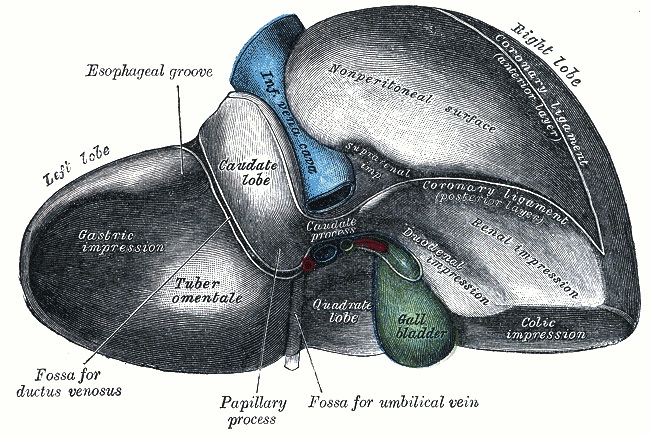Editor’s Note: This website is not designed to, and should not be construed to, provide medical advice, professional diagnosis, opinion or treatment to you or any other individual, and is not intended as a substitute for medical or professional care and treatment. Always consult a health professional about health care changes before trying out new home therapies or changing your diet.
What I am sharing with you below is based on my years of research, experimentation, and obsession with ancient Chinese philosophy.
I have been studying these kinds of things since I as 15 and since then have dedicated my life to deepening my own practice and understanding of this philosophy. I have found its application to be profoundly enlightening and transformative in my own life and I hope to share some of this with you now.
We live in a very Liver dominated world—many of our modern diseases can be traced back to this deep and fundamental imbalance. Things like sleep disorders, high/low blood pressure, high/low cholesterol, poor digestion, anxiety, anger, depression, violence—the list could go on.
Please realize that when I refer to the Liver that I am not referring to the anatomical and physical organ that we call the liver in modern times. Im referring to an octave or a certain frequency of vibration which manifests a group of functions which we call the Liver. In ancient Chinese medicine the functions of an organ are believed to include the physical, mental, emotional, spiritual, and more.
To be healthy our Liver enjoys the feeling of freedom, expansion, and expression, thus by definition, anything that constrains that free flow could be regarded as a pathogen or source of disease.
Common things that constrain liver Chi:
- Poor boundaries through overstepping ours or being encroached upon by others
- Unhealthy relationships
- Experiencing trauma or injustice
- Not being what we think we should be
- Societal, religious, and cultural programming
- Addiction to certain emotional preferences
In Chinese Medicine it is believed that each one of our major organs houses a spirit or an aspect of our spiritual nature, in this case the Hun, can be thought of as the spirit residing in the Liver. During the day our Hun is alive and active in our everyday activities, however the physical world is too limiting for our Liver, so at night our Hun is freed to travel and explore other worlds.
By this we are able to experience death and re-birth regularly and this is where we get some of the connection between a healthy liver and good sleep. One indicator or good sleep is waking up in the morning feeling re-born and slightly disoriented and then allowing this sense of newness to inform and inspire the rest of our day. At night we should feel a sense of returning back home to ourselves and easily be able to set aside and forget the cares of our worldly existence. From there we could easily suggest that to support good health of our Liver, we need good sleep and that in order for us to have good sleep, we need a healthy liver.
This is interconnection and mutual arising in that we can’t separate one or the other as each generates and controls the other.
The Liver has a great influence over our experience of inspiration. I don’t mean an extreme kind of inspiration where you always feel like you have to change the world or start a revolution, but more of a modest and subtle sense of inspiration that informs our daily activities. In this, our Liver has both yin and yang functions, yin being the desire to acquire inspiration and yang being the ability to adequately express that inspiration. Presently in modern culture we have an excess and deficiency of both of these functions as we have access to more information and inspiration than ever before while also having less time and space to digest, assimilate, and express.
These basic yin and yang functions also have a great deal to do with how we relate to and experience our emotions and our intellect. It really comes down to finding a personal balance that is harmonious for us and casting off the social programming that tells us what we should or ought to be. In modern times it’s obvious that we are far more biased towards the intellect and as such, we develop a great deal of predictable symptoms and diseases which correspond to that particular Liver chi imbalance. Yet it should also be noted that many people also find themselves on the other end of the spectrum, ie. extreme emotionality, either through reaction or denial of the modern intellectual bias or as a result of certain constitutional or karmic reasons.
Here is also where we can see the roots of the modern obsession with the insistence that our emotions have to mean something and thereby be explainable through certain Pop-Psychological theories. This is actually a subtle form of violence and limitation in that if we experience an emotion that is not in alignment with our previous label or diagnosis then we are quite likely to experience great conflict and even further turmoil.
We do this to ourselves and other people al of the time, which usually ends up creating an imbalance or an obsession with a particular pattern, when in reality, our emotions don’t mean anything.
Emotions are basically just energy in motion and we are all experiencing them all of the time, this is natural, this is called being alive. However, what happens is that we start to prefer some over others and then worship “the good” and suppress “the bad.” This is socially believed to a major part of what it means to be a normal and predictable human, when in reality, it’s actually a state of dis-ease and sub-humanity.
What I mean is that to the degree which we fulfill the psychological label someone has given us, is the degree to which we have what most people believe is harmony and the degree to which we don’t fulfill that label, is the degree to which we may have conflict.
For example:
“John is such a X person.”
“I thought you were this way, but now you’re that.”
“I just don’t know you anymore.”
How often do these things show up arguments and misunderstandings? Can you see how this behavior is an imbalance which further feeds imbalance and conflict? What I mean is that believing that you or someone else is actually a certain label or image and then modifying behavior around that is deeply limiting and constraining, thus making the Liver unhappy.
To be alive is to naturally experience a sense of inspiration and free flow of that energy so that you are inspired in your actions and can inspire others through your actions. This is natural and healthy for human beings to do. On that note I want to leave you with some things you can start working on right now to support Liver health.
6 processes to work with to support Liver health
- Good sleep through going to bed early and waking up early.
- Becoming aware of and releasing the constraints and limitations we enforce on ourselves and others.
- Finding healthy and conscious was of expressing inspiration.
- Developing healthy boundaries in relationships.
- Explore the idea that our emotions fundamentally have no meaning.
- Take Reishi Mushroom (Hyperion Herbs) or other herbs which can support healthy Liver chi.
Relephant:
5 Helpful Organ Spirits: Allies for Living a Balanced Life.
Author: Brandon Gilbert
Editor: Renée Picard
Image: Wiki Commons











Read 5 comments and reply